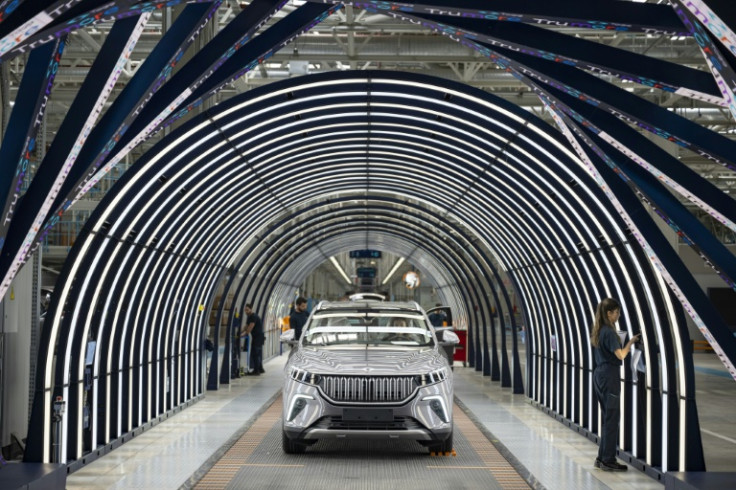Deputy President Urges Increased Chinese Investment in Auto, Infrastructure Sectors

Deputy President Paul Mashatile urged Chinese-funded businesses in South Africa to increase their investment in key sectors such as the automotive industry and infrastructure development.
Mashatile emphasized that their investment is crucial for creating jobs and boosting economic growth. Mashatile made these remarks at the launch of the corporate social responsibility report for Chinese-funded businesses in South Africa, SA News reported.
At the South Africa-China Economic Trade and Association (SACETA) Mashatile lauded the organization for its significant contributions to South Africa's economic and social development. SACETA, founded in April 2011, played an important role in promoting economic and trade cooperation between China and South Africa.
Mashatile told the attendees that the 200 Chinese-funded businesses in South Africa set a good example, showing that businesses should balance making a profit with contributing to social good.
The deputy president emphasized the importance of using their expertise to move toward a more sustainable future, based on shared goals. He pointed out that South Africa and China have complementary strengths, making them ideal economic partners.
He described China as one of the world's largest economies, offering a huge market for South African goods and services. In return, South Africa provides valuable resources like minerals, agricultural products and skilled labor to support China's growing economy.
Mashatile said he believes that improving trade ties between South Africa and China benefits both nations and positively impacts the wider region. Increased trade creates jobs, boosts economic growth, and raises living standards in both countries.
However, he acknowledged that the trade relationship has been uneven, with China's imports last year being much higher than its exports.
Mashatile announced that the government plans to collaborate with China to address the trade deficit and improve the structure of bilateral trade by expanding South Africa's exports, especially by exporting more value-added products.
He explained that South Africa mostly exports minerals and agricultural products to China while importing manufactured goods. As African economies become more integrated, he believes China's technology could help Africa industrialize and export more than just raw materials.
For example, instead of just exporting raw agricultural products, South Africa could focus on exporting processed foods that have higher value.
Last year, Chinese businesses promised to invest up to R15 billion at South Africa's fifth Investment Conference. Mashatile pointed out that in the same year, both countries signed major purchase agreements worth US$2.2 billion.
© Copyright 2025 IBTimes ZA. All rights reserved.





















